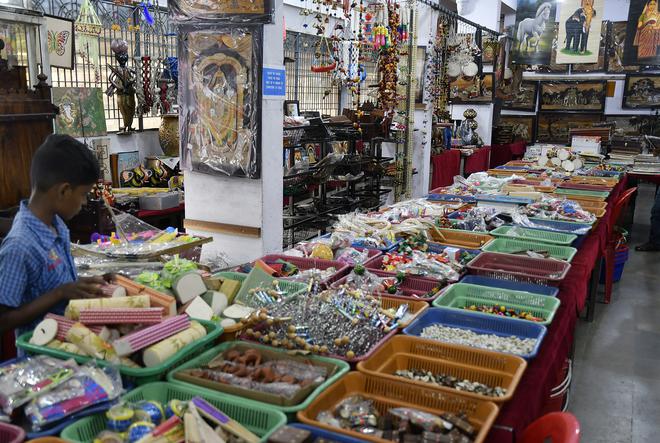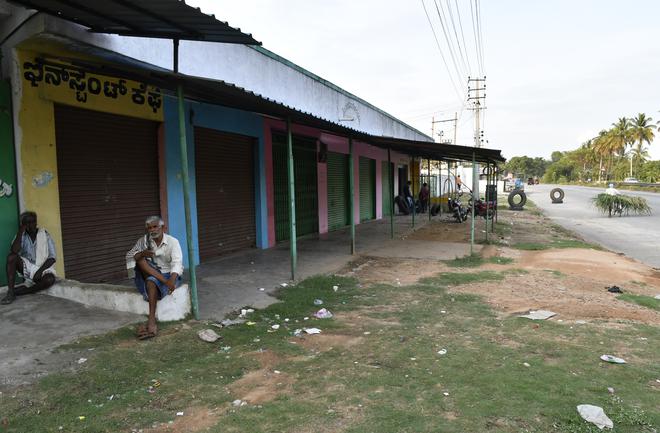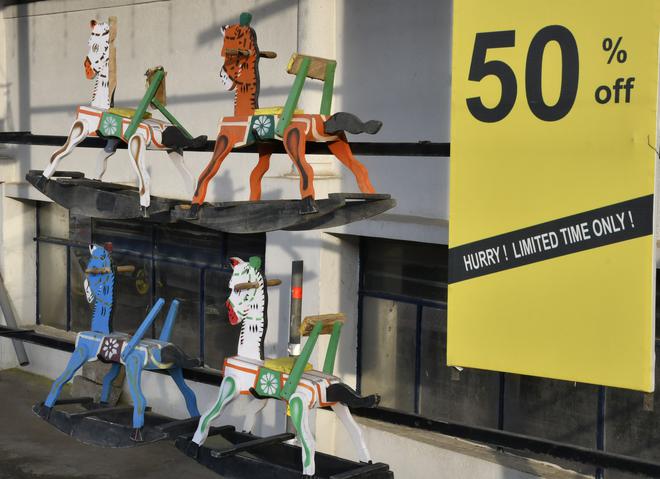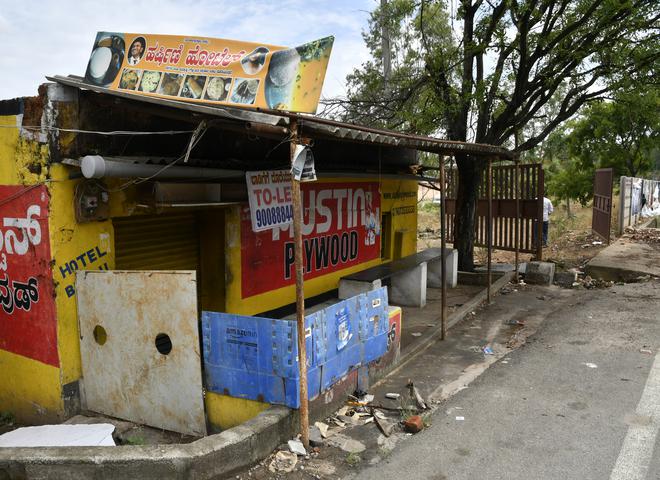Shopkeepers who continue to suffer business losses after the opening of the Bengaluru-Mysuru Expressway see no hope of recovery in the near future, and lament that no political party is interested in attending to their grievances.
Sanjay Gowda, owner of Sri Cauvery Arts and Crafts Emporium in Channapatna, says the expressway came as a big blow to their business when they were recovering from the impact of the pandemic.
“Prior to the opening of the expressway, on an average 150 customers used to visit our shop but it has dropped to 10 to 15 now. Shopkeepers are struggling to pay the rent and many have closed their shops. We have been selling Channapatna toys and other crafts for 60 years, and I have never seen this kind of business losses before.”
Speed of travel vs. livelihood issues
Last year, the National Highways Authority of India (NHAI) partially opened the newly-built infrastructure. The inauguration of the expressway was perfomed by Prime Minister Narendra Modi prior to the announcement of the election dates.

In the second week of April, the entire main carriage of six lanes was fully made operational. The NHAI had promised that travel time would be reduced from 3 hours to 75 minutes. Reduction in travel time has given relief for motorists travelling between the two cities.
However, after the opening of the expressway in a phased manner, the movement of vehicles on the old highway significantly dropped, resulting in losses for those running hotels, eateries, petrol bunks, garages, and others.
Somashekar, who runs a tea shop near Archakarahalli, said, “Earlier, I used to purchase 15 litres of milk to prepare tea, but now it has dropped to 3 litres per day. People running tea stalls and bakeries are now relying on local people for business as the movement of vehicles drastically dropped on this road. Many have closed down.”

Muhammad Zafarullah, who works in a puncture shop, said, “There is hardly any movement of heavy vehicles on this road. It has become difficult to earn even ₹100 to ₹150 per day. How can people like us pay rent and run a business? You will find many examples like us on this stretch.”
Somashekara, who works at a cafe and juice centre near the Kengal Anjaneyaswamy Temple, said, “Motorists heading towards Bengaluru used to stop vehicles near our shop. Now we hardly see any footfall. Considering the losses, our owner decided to open a cafe in Bengaluru. Some of our previous employees have gone there. We are now running the cafe with minimum staff.”
Shop owners say hundreds of people have lost their jobs due to business losses. Many shops in the area are shut and boards are displayed stating that the shop is available for rent.

One common thread running through all the conversations is that no political party has raised their issues in the run up to the election. They say that talks on caste affiliation, polarisation, and other manner of politicking have drowned out their long-term livelihood concerns.
Access provided to main carriage
The NHAI had claimed that the main carriageway of the expressway is access controlled. However, access from the service road to the main carriage is provided at many locations along the expressway. The NHAI has fixed bollards at many locations to give access for the vehicles coming from villages to enter the main carriageway.

Sridhara M., a villager in Byrapatna, said, “Earlier, the NHAI was reluctant to give access to the main carriageway but it was done after villagers insisted on it. There is a need for installation of signboards for the benefit of the motorists. But I suspect they may allow motorists to enter the main carriageway from the service road only after the elections end.”
An official of the NHAI said, “ We have noticed that using these points, many motorists are exiting the main carriageway without paying toll.”







